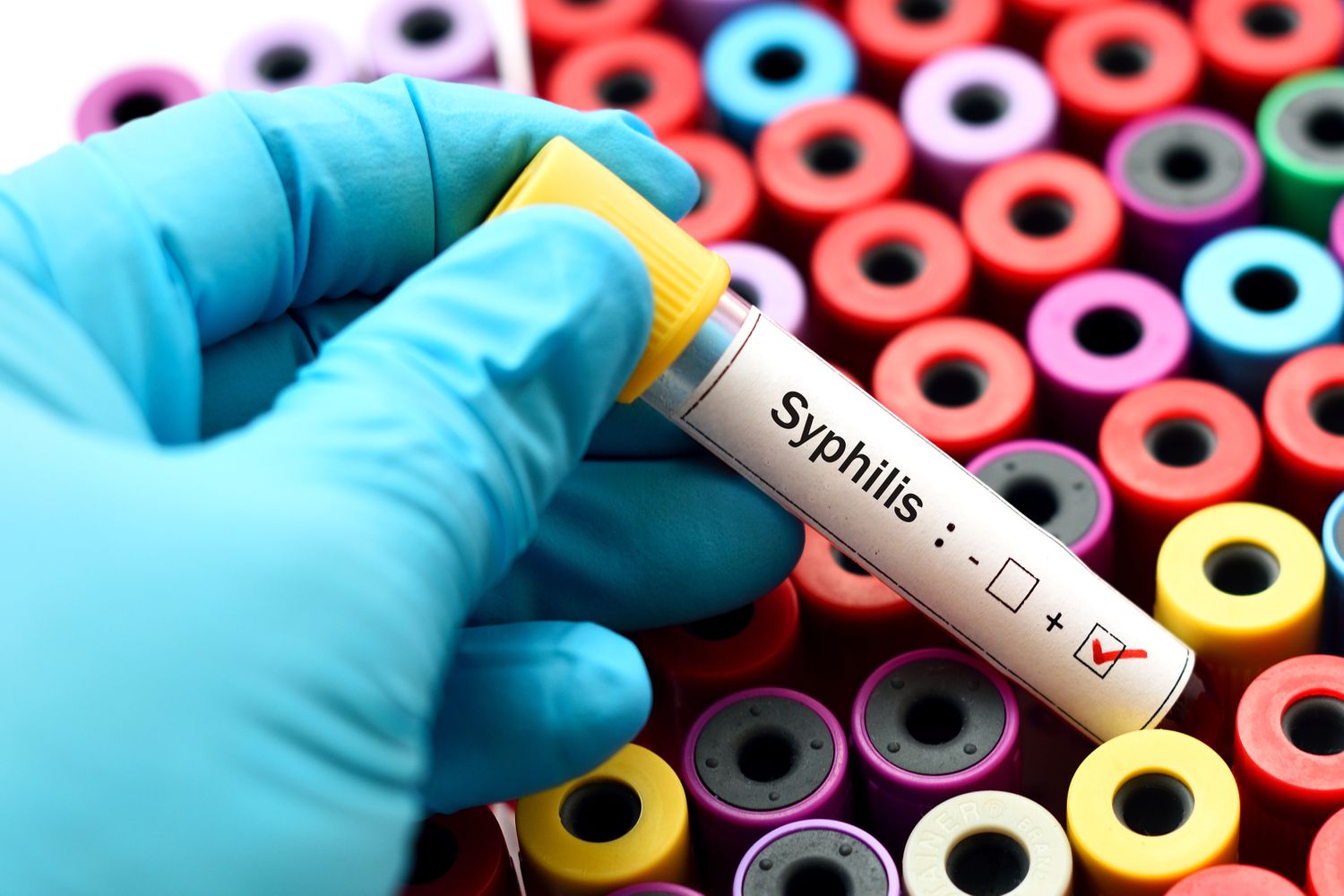
Syphilis testing is crucial for maintaining public health and preventing the spread of this sexually transmitted infection. Syphilis can cause serious health problems if left untreated, but early detection through testing can lead to effective treatment. Testing typically involves a simple blood test that can detect antibodies produced in response to the infection. Regular testing is recommended for sexually active individuals, especially those with multiple partners. Understanding the importance of syphilis testing can help reduce stigma and encourage more people to get tested. Let's dive into 30 essential facts about syphilis testing to keep you informed and healthy.
What is Syphilis?
Syphilis is a sexually transmitted infection (STI) caused by the bacterium Treponema pallidum. It can cause serious health problems if not treated. Testing for syphilis is crucial for early detection and treatment.
- Syphilis is often called "the great imitator" because its symptoms can resemble many other diseases.
- The infection progresses through four stages: primary, secondary, latent, and tertiary.
- Syphilis can be transmitted through direct contact with a syphilitic sore during vaginal, anal, or oral sex.
- Pregnant women with syphilis can pass the infection to their unborn child, leading to congenital syphilis.
Importance of Syphilis Testing
Testing for syphilis is essential to prevent complications and stop the spread of the infection. Early detection can lead to effective treatment and a full recovery.
- Early-stage syphilis is often asymptomatic, making testing vital for diagnosis.
- Untreated syphilis can lead to severe health issues, including damage to the heart, brain, and other organs.
- Regular testing is recommended for sexually active individuals, especially those with multiple partners.
- Syphilis testing is a routine part of prenatal care to protect both mother and baby.
Types of Syphilis Tests
There are several tests available to detect syphilis. Each test has its own method and purpose.
- The Rapid Plasma Reagin (RPR) test detects antibodies produced in response to the infection.
- The Venereal Disease Research Laboratory (VDRL) test is similar to the RPR but is often used for cerebrospinal fluid testing.
- The Fluorescent Treponemal Antibody Absorption (FTA-ABS) test confirms a syphilis diagnosis after a positive RPR or VDRL test.
- The Treponema pallidum particle agglutination assay (TPPA) is another confirmatory test for syphilis.
- Darkfield microscopy can directly detect the Treponema pallidum bacterium in samples from syphilitic sores.
How Syphilis Testing is Done
Understanding the testing process can help alleviate any concerns or fears about getting tested.
- Blood tests are the most common method for detecting syphilis.
- A healthcare provider will draw a small sample of blood from your arm for testing.
- In cases of suspected neurosyphilis, a lumbar puncture may be performed to test cerebrospinal fluid.
- For pregnant women, syphilis testing is typically done during the first prenatal visit and again in the third trimester.
- Rapid syphilis tests can provide results in as little as 15-20 minutes.
Interpreting Syphilis Test Results
Understanding what your test results mean is crucial for taking the next steps in your healthcare journey.
- A positive RPR or VDRL test indicates the presence of syphilis antibodies but requires confirmation with a treponemal test.
- A positive FTA-ABS or TPPA test confirms a syphilis infection.
- False-positive results can occur, especially in individuals with certain medical conditions or other infections.
- Negative test results mean no syphilis antibodies were detected, but retesting may be necessary if exposure was recent.
Treatment After a Positive Syphilis Test
Timely treatment can cure syphilis and prevent long-term health problems.
- Penicillin is the most effective treatment for syphilis at all stages.
- For those allergic to penicillin, other antibiotics like doxycycline or azithromycin may be used.
- Early-stage syphilis can often be cured with a single injection of penicillin.
- Late-stage syphilis may require multiple injections or a longer course of antibiotics.
- Follow-up testing is essential to ensure the infection has been fully treated.
Preventing Syphilis
Prevention is always better than cure. Knowing how to protect yourself can reduce the risk of infection.
- Consistent and correct use of condoms can significantly reduce the risk of syphilis transmission.
- Regular STI screenings for sexually active individuals help catch infections early.
- Open communication with sexual partners about STI status and testing history is crucial for mutual safety.
Final Thoughts on Syphilis Testing
Syphilis testing plays a crucial role in maintaining public health. Early detection through blood tests or rapid plasma reagin (RPR) tests can prevent severe complications. Regular screening, especially for those at higher risk, ensures timely treatment and reduces transmission. Penicillin remains the most effective treatment, highlighting the importance of early diagnosis. Remember, untreated syphilis can lead to serious health issues, including damage to the heart, brain, and other organs. Testing is straightforward and accessible, making it easier to stay informed about your health status. Don't wait for symptoms to appear; proactive testing can make all the difference. Stay informed, get tested regularly, and encourage others to do the same. Your health and the health of those around you depend on it.
Was this page helpful?
Our commitment to delivering trustworthy and engaging content is at the heart of what we do. Each fact on our site is contributed by real users like you, bringing a wealth of diverse insights and information. To ensure the highest standards of accuracy and reliability, our dedicated editors meticulously review each submission. This process guarantees that the facts we share are not only fascinating but also credible. Trust in our commitment to quality and authenticity as you explore and learn with us.


